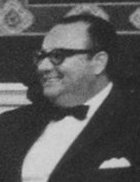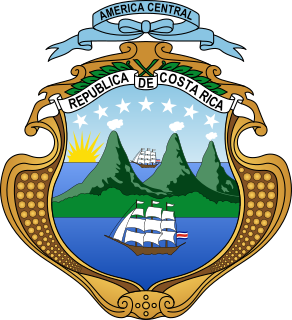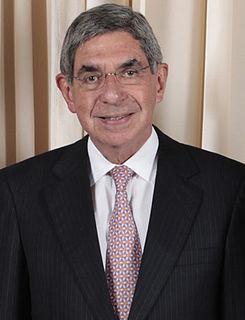| |||||||||||||||||||||||||
| Turnout | 69.1% | ||||||||||||||||||||||||
| |||||||||||||||||||||||||
In green provinces won by Monge | |||||||||||||||||||||||||
| |||||||||||||||||||||||||
 |
|---|
| This article is part of a series on the politics and government of Costa Rica |
Legislature |
|
General elections were held in Costa Rica on 7 February 1982. [1] Luis Alberto Monge of the National Liberation Party won the presidential election, whilst his party also won the parliamentary election. Voter turnout was 78.6%. [2]

Costa Rica, officially the Republic of Costa Rica, is a country in Central America, bordered by Nicaragua to the north, the Caribbean Sea to the northeast, Panama to the southeast, the Pacific Ocean to the southwest, and Ecuador to the south of Cocos Island. It has a population of around 5 million in a land area of 51,060 square kilometers. An estimated 333,980 people live in the capital and largest city, San José with around 2 million people in the surrounding metropolitan area.

Luis Alberto Monge Álvarez was the President of Costa Rica from 1982 to 1986. He also served as Costa Rica's first Ambassador to Israel from 1963 until 1966.

The National Liberation Party, nicknamed the verdiblancos, is a political party in Costa Rica. The party is a member of the Socialist International.
Contents
Affected by a deep economic crisis and tensions with Somoza’s Nicaragua due to Rodrigo Carazo’s support of the FSLN, Carazo’s government suffered from extremely low popularity. This naturally affected the Unity Coalition (Carazo’s party) and its candidate Rafael Ángel Calderón Fournier giving to PLN and its candidate trade union leader and farmer Luis Alberto Monge a landslide victory and the party's biggest parliamentary group in its history (33 deputies). Nevertheless, Unity remained as the second most voted party in the election as Calderón was able to attract the traditional and very loyal Calderonista vote. [3] The crisis was also beneficial for the Left as it achieved a historical high voting and four seats in Parliament (the biggest group since 1948) with Dr. Rodrigo Gutiérrez repeating candidacy from United People. Another candidate was former president Mario Echandi by the conservative and anti-Communist National Movement, but Echandi’s candidacy was testimonial receiving almost as many votes as Gutierrez (3% each), according to some due to his incapacity to understand modern times when personal wealth and family origin was not enough to win an election. [4]

Anastasio "Tachito" Somoza DeBayle was a Nicaraguan dictator and officially the President of Nicaragua from 1 May 1967 to 1 May 1972 and from 1 December 1974 to 17 July 1979. As head of the National Guard, he was de facto ruler of the country from 1967 to 1979. He was the last member of the Somoza family to be President, ending a dynasty that had been in power since 1936. After being overthrown in an insurrection led by the Sandinista National Liberation Front, he fled Nicaragua and power was ceded to the Junta of National Reconstruction. He was eventually assassinated while in exile in Paraguay.

Nicaragua, officially the Republic of Nicaragua, is the largest country in the Central American isthmus, bordered by Honduras to the northwest, the Caribbean to the east, Costa Rica to the south, and the Pacific Ocean to the southwest. Managua is the country's capital and largest city and is also the third-largest city in Central America, behind Tegucigalpa and Guatemala City. The multi-ethnic population of six million includes people of indigenous, European, African, and Asian heritage. The main language is Spanish. Indigenous tribes on the Mosquito Coast speak their own languages and English.
The Unity Coalition was a Costa Rican political coalition of right-wing opposition parties made in the 70s and oppose to the then ruling centre-left National Liberation Party. Four parties made the coalition; Democratic Renewal, Christian Democrats, People’s Union and Republican Calderonista. After a primary election from which Rodrigo Carazo Odio was victorious the coalition presented him as candidate winning the 1978 elections. Eventually the Coalition merged forming the Social Christian Unity Party in 1983.
















